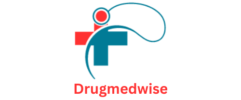Table of Contents
ToggleIntroduction: Finding the Best Medicine for Depression and Anxiety
Finding the best medicine for depression and anxiety can be a challenging journey. With a myriad of options available, it’s crucial to identify a treatment plan that works for your unique needs. Depression and anxiety are complex mental health conditions that affect millions of people worldwide. While therapy, lifestyle changes, and support systems play essential roles, medication often forms a critical part of the treatment strategy. This article offers practical tips and recommendations to help you navigate the process of finding the most effective medication for depression and anxiety.
When it comes to selecting the best medicine for depression and anxiety, understanding your options is the first step. The most commonly prescribed medications fall into several categories:
Selective Serotonin Reuptake Inhibitors (SSRIs): These are often the first line of treatment for depression and anxiety. SSRIs, such as Fluoxetine (Prozac) and Sertraline (Zoloft), work by increasing the levels of serotonin in the brain, which helps improve mood and reduce anxiety.
Serotonin-Norepinephrine Reuptake Inhibitors (SNRIs): SNRIs like Venlafaxine (Effexor) and Duloxetine (Cymbalta) also target serotonin but add norepinephrine to the mix. This combination can be particularly effective for individuals who do not respond fully to SSRIs.
Benzodiazepines: For those experiencing acute anxiety, Benzodiazepines like Alprazolam (Xanax) and Clonazepam (Klonopin) may be prescribed. However, due to the risk of dependency, these are typically used on a short-term basis.
Atypical Antidepressants: Medications such as Bupropion (Wellbutrin) and Mirtazapine (Remeron) are considered atypical because they work differently from SSRIs and SNRIs. They are often used when traditional antidepressants don’t provide the desired results.
Tricyclic Antidepressants (TCAs): Although older, TCAs like Amitriptyline and Imipramine are still used today, particularly for treatment-resistant depression.
Monoamine Oxidase Inhibitors (MAOIs): These are generally reserved for individuals who don’t respond to other treatments due to dietary restrictions and side effects. However, Phenelzine (Nardil) and Tranylcypromine (Parnate) can be very effective for some patients.
Choosing the best medicine for depression and anxiety involves careful consideration and close consultation with your healthcare provider. Here are some key tips:
Consult with a Specialist: Start by consulting a psychiatrist or a healthcare provider specializing in mental health. They can assess your symptoms, medical history, and overall health to recommend the most suitable medication.
Consider the Side Effects: Every medication comes with potential side effects. Discuss these with your doctor to understand what to expect and how to manage any adverse effects.
Be Patient: Finding the right medication can take time. It may involve trying different drugs or adjusting dosages. Patience is key, as it can take several weeks to feel the full effects of a new medication.
Monitor Your Symptoms: Keep track of your symptoms and any changes you notice after starting a new medication. This will help your doctor make necessary adjustments to your treatment plan.
Stay Informed: Educate yourself about the different medications available. Understanding how they work and their potential side effects will empower you to make informed decisions about your treatment.
Recommendations for Managing Medication
Once you’ve found the best medicine for depression and anxiety, managing your treatment effectively is crucial:
Follow Your Prescription: Always take your medication as prescribed by your healthcare provider. Do not alter your dosage without consulting your doctor.
Attend Regular Check-ups: Regular follow-ups with your doctor will help monitor your progress and make any necessary adjustments to your medication.
Complement with Therapy: Medication is often most effective when combined with therapy. Cognitive-behavioral therapy (CBT) and other forms of counseling can provide additional tools for managing your mental health.
Stay Connected: Building a support network of friends, family, or support groups can help you stay on track with your treatment and provide emotional support.
Conclusion: The Journey to Better Mental Health
Finding the best medicine for depression and anxiety is a personal journey that requires time, patience, and collaboration with your healthcare provider. By following the tips and recommendations outlined in this guide, you can navigate the complexities of treatment and find a medication that helps you achieve a better quality of life. Remember, effective treatment is about finding the right balance between medication, therapy, and support, all tailored to your individual needs.




